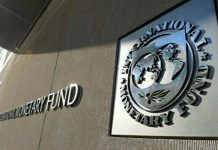-Shehbaz’s govt failing to save the ‘sinking ship’: Steve Hanke
WASHINGTON: US-based renowned economist Steve Hanke has warned that Pakistan was on the brink of a “debt default”.
“Its [Pakistan’s] sovereign bonds have lost more than 60% of their value this year. I’m not surprised,” he wrote on his official Twitter handle on Friday. Hanke said that Prime Minister Shehbaz Sharif’s government was failing to save the ‘sinking ship’.
The observation was in stark contrast to the statements of ruling PML-N leaders who claim that the party had saved the country from an imminent default. In an interview, the then-finance minister Miftah Ismail said that the country will “absolutely not” default on debt obligations despite catastrophic floods. “The path to stability was narrow, given the challenging environment, and it has become narrower still,” Miftah said. “But if we continue to take prudent decisions – and we will – then we’re not going to default. Absolutely not.” He said global markets were “jittery” about Pakistan, given the economy had suffered at least $18 billion in losses after the floods, which could go as high as $30 billion.
“Yes, our credit default risk has gone up, our bond prices have fallen. But, I think within 15 to 20 days, the market will normalise, and I think will understand that Pakistan is committed to being prudent.” Pakistan’s next big payment – $1 billion in international bonds – is due in December, and Ismail said that payment would “absolutely” be met. There’s little relief in sight for a host of developing nations from Egypt to Malawi and from Pakistan to Ecuador, all of whom are facing a painful economic squeeze as the costs of servicing debt rise further.
Officials from the International Monetary Fund (IMF) and other bodies expect the debt crunch to heap more pressure on these so-called ‘frontier markets’, which are already struggling with the impacts of Russia’s war in Ukraine and the Federal Reserve’s tightening cycle to cool US inflation.
Many of these countries are also still wrestling with the effects of the Covid-19 pandemic. –Agencies




